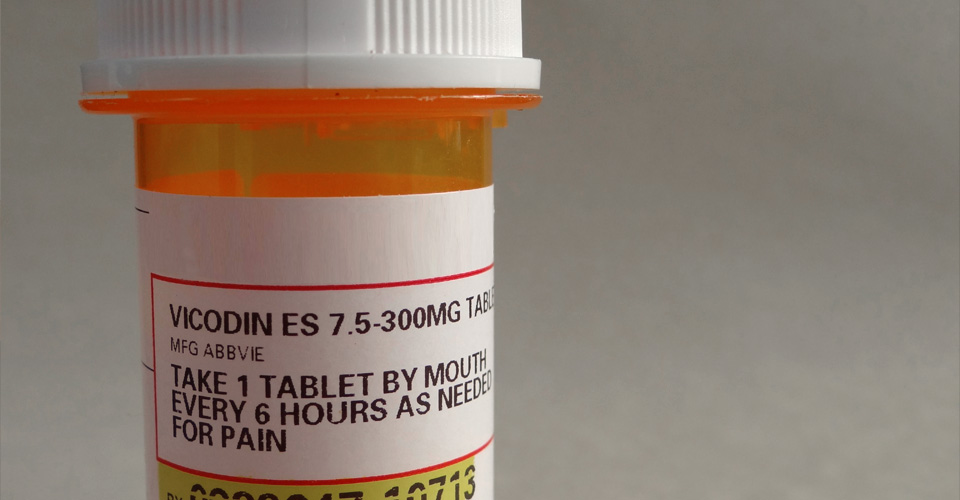This article is the seventh in a series about the epidemic of opioid addiction and how NEOMED is training future physicians and pharmacists to help.
The opioid epidemic has undeniably permeated the thought lives of NEOMED students like myself. As members of the health care world, we have no choice but to be cognizant of such a relevant topic, and for many of us, the crisis hits closer to home. We have witnessed the effects of opioid addiction on our own peers and family members. We log onto Facebook only to be blindsided by the obituary of an old high school classmate.
Interest in the topic of addiction among NEOMED students has surpassed passive curiosity. We are becoming increasingly active, and we invite our fellow students and the community to participate in events like the community forum listed at the end of this article.
As a second-year College of Medicine student and the president of the Psychiatry Student Interest Group, I have observed my peers’ obvious desire to delve into the issue of addiction. Our interest group has striven to meet this desire, as have NEOMED chapters of the College of Psychiatric and Neurologic Pharmacists and the National Alliance on Mental Illness.
It was clear that interest was high for a guest lecture on the neurobiology of addiction recently presented by the Psychiatry Student Interest Group and the NEOMED department of psychiatry. As soon as the announcement was posted, students reserved seats. Fifty students representing the College of Medicine, College of Pharmacy and College of Graduate Studies turned out for the talk by Nicole Labor, D.O., the director of the addiction medicine fellowship at Summa Health.
The attending crowd was not disappointed by the captivating presentation. Dr. Labor explained that addiction is a brain disease, explaining the basic mechanism of addiction with inventive metaphors. Opioids are ‘’the Maserati on the way to hell,’’ said Dr. Labor. Compared with them, she said, alcohol is a mere Schwinn bicycle.
Dr. Labor provided a basis of understanding and empathy for the addict. She explained how the survival instincts of the brain, misinterpreting the addictive substance as an imperative means of survival, enslave the parts of the brain that control higher-order reasoning. Using solid scientific evidence, Dr. Labor dispelled many myths about addiction. For example, she explained why addiction does not merely result from a lack of willpower. Dr. Labor’s simple yet powerful explanation of addiction serves as the crucial foundation for approaching the issue. If students ever expect to assist addicts in overcoming their disease, they must first understand the disease, using the disease model we learn in school to first identify the organ affected, then the defect in the organ, then the symptoms.
It was interesting that Dr. Labor noted the importance of spirituality in the addict’s treatment plan. While a term like “spirituality” may seem off-putting to objective, scientifically-minded students, Dr. Labor’s discussion of the term did not remotely reek of pseudoscience or speculation. Dr. Labor consistently justified each topic she presented. She continued as she verified the use of the term “spirituality” with proven neuroscientific data, mentioning that the area of the brain that controls spirituality (meaning perspectives about life’s higher meanings and one’s place in the world) is the only area powerful enough to overcome the urges of an addict’s rampant midbrain.
Of course, a one-hour lecture can only scratch the surface of such an intricate issue. The Psychiatry Student Interest Group hopes that future events will continue to equip students with the knowledge and understanding necessary to approach addiction. We can learn a great deal from those who have treated, have researched, and have truly been exposed to this disease. I look forward to being part of a multi-faceted solution to a complex problem.
Upcoming Events:
Community Forum, Saturday, Feb. 11, 10 a.m.-noon. The College of Psychiatric and Neurologic Pharmacists Student Chapter and the Mental Health and Recovery Board of Portage County host a community forum on the heroin and opioid epidemic. Northeast Ohio Medical University Education and Wellness (NEW) Center 2nd-floor Ballroom, NEOMED, 4205 State Route 44, Rootstown. Free; breakfast and coffee provided. Questions? Contact Charlie Dorflinger, cdorflinger@neomed.edu.
“Recovery Rocks,’’ Thursday, Feb. 16, 7 p.m. Guest speaker Nicole Labor, D.O. Free, open to all members of the KSU community. Kent State University Student Center, 1075 Risman Dr. Contact Maureen Keating, mkeating5@kent.edu or Devann Sund, 330.672.2487.
--Kristen Cannon (M2) is the president of the Psychiatry Interest Group at NEOMED.
